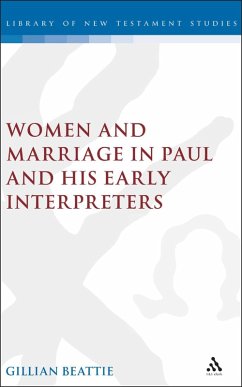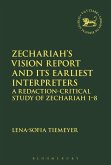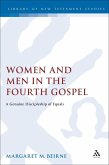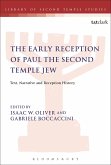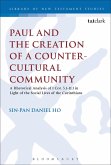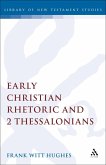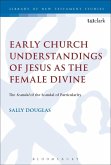Beattie undertakes a comparative survey of the treatment of women and marriage in three different kinds of text: an authentic Pauline letter (namely 1 Corinthians); the deutero-Pauline literature (Colossians, Ephesians and the Pastoral Epistles); and some tractates from the Nag Hammadi library (giving particular attention to the Gospel of Philip, the Exegesis on the Soul, the Hypostasis of the Archons and the Gospel of Thomas). The theoretical position she takes is based upon the neo-pragmatist thought of Richard Rorty and Stanley Fish, the former's notions of 'contingency' and 'redescription' being of particular importance.
The aim of this book is twofold: to draw attention to the contingency (that is to say, the situatedness and vested interests) attendant on all acts of interpretation; and to engage in a redescription of the category of 'gnosticism' to which the Nag Hammadi texts have traditionally been assigned, and thus also of the canonical texts as seen in relation to them. It is not the intention to suggest in a simplistic fashion that the Nag Hammadi texts should somehow displace the canonical documents as the 'correct' reading of Paul, but rather to show that texts can be read in ways as diverse and numerous as the goals of their interpreters.
JSNTS 296
The aim of this book is twofold: to draw attention to the contingency (that is to say, the situatedness and vested interests) attendant on all acts of interpretation; and to engage in a redescription of the category of 'gnosticism' to which the Nag Hammadi texts have traditionally been assigned, and thus also of the canonical texts as seen in relation to them. It is not the intention to suggest in a simplistic fashion that the Nag Hammadi texts should somehow displace the canonical documents as the 'correct' reading of Paul, but rather to show that texts can be read in ways as diverse and numerous as the goals of their interpreters.
JSNTS 296

